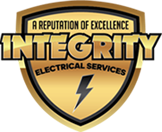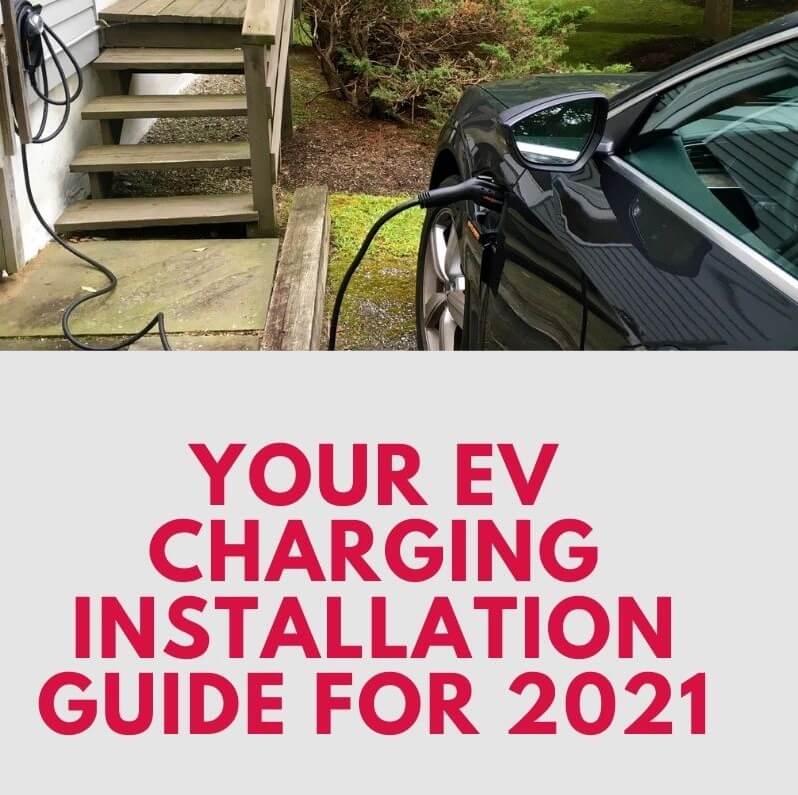Installing An EV Charger At Home
Hiring a licensed electrician to install an Electric Vehicle (EV) charging station is well worth the money, assuming you hire a reputable and trustworthy electrician. When it comes to EV home charger installation, certain technical details, you can’t just ignore. Your typical handyman, claiming to be a “professional EV charger installer”, may wrongfully advise and overcharge you if you don’t know what to look out for.
Or worse, unreputable EV charger installation companies may install an EV charger in a home that doesn’t have the electrical capacity to handle it, potentially resulting in outages and a fire. An untrustworthy electrician may also tell you the opposite; “You do need an electrical panel upgrade before installing an EV charger.” But the truth is, you don’t need a panel upgrade because most of your appliances run off natural gas.
Are there safety issues that come with installing an EV charger at my home?
What local and national electrical codes must I comply with when installing an EV charger at my house?
Should I get a Level One, Two, or Three EV charger installed for my new Tesla?
What’s the ideal amperage needed for a fast charge?
How do you know if an electric panel upgrade is required before installing an EV charger?
How much does it cost to install an EV charger at a residential property?
All of the answers to these questions will be explained in this EV charging installation guide. As an added bonus, you’ll receive tips throughout the post from Joe O’Connell, a Wilmington MA-based licensed electrician. The following EV charging installation guide will tell you what you need to know and coach you on how to go about installing an EV charging station on your residential property.
What is an EVSE Charger?
EVSE is an acronym for Electric Vehicle Supply Equipment (also a fancy name for “EV charger”). According to Green Car Reports, “Simply put, EVSE is a protocol to help keep you and your electric car safe while charging.”
Source: GreenCarReports.com
How many amps is a fast car charger?
Joe O’Connell, a licensed electrician and the owner of Integrity Electrical Services, explains that:
“The more amperage – the faster the charge for your electric vehicle. Go with the fastest charging units that include (40-60 amps for residential homes). For Tesla EV chargers, the most cost-effective route is to go with the 50-amp charger. The smaller the amperage, the longer it takes to charge your electric vehicle. For example, with 32-amp charging stations or less that you plug into your regular outlet, your car could take over 24 hours to charge. “
Do I need to upgrade the electrical panel before installing an electric car home charging station?
O’Connell explains “If you have natural gas for all of your major appliances for your house, you can typically get away with a 100-amp panel. If your appliances run off electric, you may need to increase your electrical capacity to a 200 amp panel.”
Again, be careful who you hire. An unlicensed electrical contractor may not understand how to evaluate a home’s current electrical capacity correctly and whether or not it’s sufficient to handling the EV charger.
Tesla EV Charging Stations
Local Massachusetts Electricians that Install EV charging stations
For consumers in Massachusetts, Tesla EV charging stations can be installed by Integrity Electrical Services. Integrity can come to your home and evaluate your current electrical capacity as a first step. Integrity will give you an honest evaluation and free estimate. At the very least, if you decide to move forward, Integrity can install a unit that has the capability of charing your car at a faster rate than your regular outlets. You will get multiple options to choose from.
Level One, two, and three EV chargers are worth considering. Still, depending on the EV charger you’re having installed could require an electrical panel upgrade, again to ensure it’s compliant with laws and there is no safety hazard.
Level 1 EV charger
A Level One EV charger is what comes with your electric vehicle. Level One chargers can be plugged into any regular three-prong outlet.
Do I need to hire an electrician to install a Level One EV Charging Station?
In most cases, you would not need to hire an electrician to install a Level One EV charger. The downside to charging your vehicle with a level One charger is that it can take over twenty hours to charge your vehicle (Ouch!)
Level One EV chargers deliver approximately 40 miles in an 8-hour overnight charging session. Charging a 250-mile range car on Level One can take over two days.
Level 2 EV charger
Level Two EV chargers are the most popular for residential homes. Level Two EV chargers do need a dedicated 240-volt circuit. This 240-V circuit is also commonly used for electric clothes dryer appliances.
Do I need to hire an electrician to install a Level Two Charger?
Yes, hire a licensed electrician to install a Level Two EV charger.
What is the best place to install a Level Two charger?
Level Two chargers can be installed in your garage.
How fast can a Level Two charge my electric vehicle?
Your car can go from low to full charge within approximately three hours with the Level Two EV charger. Level Two chargers run at twice the voltage as Level One.
Do I need to upgrade my electrical panel before installing a Level Two EV charger?
A Level Two EV charger could require an electrical panel upgrade if you have an older home. You will need at least a 200-amp electrical panel to install a Level Two charger unless most of your appliances are running off natural gas.
You may need an “electrical system upgrade, including a new dedicated 40-amp, 240-volt circuit with 8-AWG wiring to support the quicker charging Level Two charger,” according to Mr. Electric, a Massachusetts electrical company.
How much does it cost to install a home EV charger?
Cost to install EV charger at home: Most EV charger installers will charge a fee just to come out to give an estimate. One client told us that Sylvester Electric charges $59 to come and provide an estimate. At Integrity Electrical Services we have ways of working with our clients to ensure they get a free estimate.
Do I need a dedicated circuit for my EV charging unit?
O’Connell explains, “Yes, a dedicated circuit line connects from the electrical panel to the EV charging unit.”
How long does it take a licensed electrician to install an EV charger at your home?
O’Connell explains, “If the customer provides the unit, it could take my team approximately 2 hours to install a 50 amp EV charger.”
How much does it cost to install a Level 2 EV charger?
Installing a Level Two EV charger with a 50-amp circuit could cost you around $5,000.
But don’t be alarmed by the price, because this price includes an electrical panel upgrade, assuming you have an older home.
Keep in mind; you will need to run a line capable of 40 to 50 amps to your parking spot and install a 50 amp plug or hardwired wall EVSE charger. If you have a newer home, an electrical panel upgrade may not be required, a licensed electrician can just add a new circuit.
Integrity Electrical Services charges $800 to $1,000 for EV charging installation services in Massachusetts, compared to many electricians that charge above $1,200 for the same service. But keep in mind, this total cost does not include an electrical panel upgrade if one is needed.
According to HomeGuide.com, “An electric car charging station installation costs $750 to $2,600 for a Level 2 charger, 240-volt outlet, wiring, and wall mounting. Some EV charger installations cost $2,000 to $5,000 for extensive wiring or if the electrical panel needs upgrading. Tesla charger installation costs $1,000 to $1,700 total.”
Source: HomeGuide.com
Older homes often have 100 amps of service. Therefore, electrical codes require older homes to get a panel upgrade before having a Level Two EV charger installed.
If you reside in MA, call Integrity Electrical Services for a Free Estimate Today! Whether you live in Andover or Woburn, Integrity Electrical Services has trucks all across the state to help.
How much does the power company charge (billing for using your EV charger)?
Power companies may charge more for charging during peak times and lower rates for EV charging during off-peak times. Contact your power company to inquire about these charges.
Level 3 EV charger installation:
Level Three EV chargers are what public charging stations use. Within thirty minutes, you can charge 160 miles of driving range. (sweet!)
Level Three EV chargers can recharge an electric vehicle’s battery to 80% in 30 minutes.
Unfortunately, level three EV chargers are unavailable for residential homes due to their industrial level power draw. You could have a level three EV charger installed at your office if it’s in an industrial building.
Top 8 EV Chargers for 2021
According to AutoGuide.com here are your top eight EV chargers for 2021.
- Editor’s Pick: JuiceBox Smart EV Charger. …
- ChargePoint Home Flex WiFi Enabled EV Charger. …
- Siemens VersiCharge Home Charger. …
- Bosch Level 2 EV Charger. …
- Pulsar Plus Level 2 EV Charger. …
- AmazonBasics Level 2 EV Charging Station. …
- Grizzl-E Level 2 EV Charger. …
- ClipperCreek HCS-40 EV Charging Station.
Click here to visit AutoGuide.com and read more about each EV charger on this list.
EV charging station installers Near me
Find a local and licensed electrician with high reviews online to install your EV charger; that’s your best bet!
Integrity Electrical Services has installed thousands of EV charging stations in Massachusetts. EV charger installers in MA are available today at (978) 753-8350.


